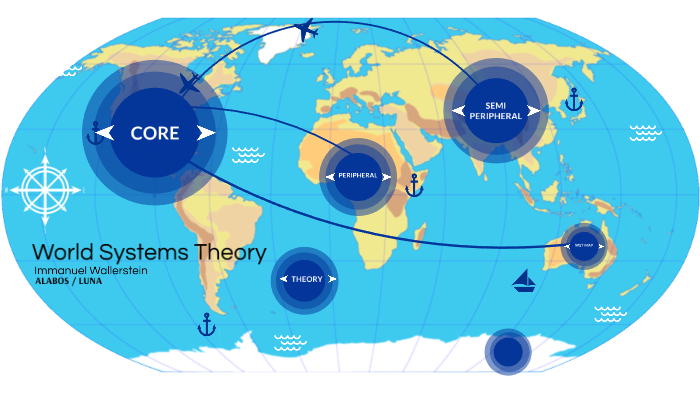The Role of Nation-States in the World-System
3. The Role of Nation-States in the World-System
Question: Analyze the rise of the modern nation-state system. How did sovereign nation-states, colonies, and the interstate system develop within the framework of the capitalist world-system?
Relevant Readings: Wallerstein, Chapter 3 of World-Systems Analysis.
Immanuel Wallerstein’s analysis of the rise of the modern nation-state system is deeply intertwined with his broader framework of world-systems theory, which emphasizes the capitalist world economy as a dynamic and interrelated system. This system encompasses sovereign nation-states, colonial entities, and the interstate system, all of which developed in response to the economic imperatives of capitalism.
## The Rise of the Modern Nation-State System
### Historical Context
The modern nation-state system began to take shape in the late medieval period and solidified during the early modern era, particularly from the sixteenth century onward. Wallerstein argues that this evolution was not merely a political transformation but was fundamentally linked to the emergence of a capitalist world economy.
- **Feudalism to Capitalism**: The transition from feudalism to capitalism marked a significant shift in political and economic structures. As feudal lords lost power and centralized monarchies gained strength, sovereign nation-states emerged. This transition was facilitated by the growth of trade and commerce, which required stable political entities to manage economic interests.
- **Sovereignty and Territoriality**: The concept of sovereignty became central to the modern nation-state system. States began to assert control over defined territories, establishing legal frameworks and governance structures that allowed them to regulate economic activities within their borders. This sovereignty was crucial for engaging in international trade and competition, which were essential for capitalist expansion.
### Development of Colonies
Colonialism played a pivotal role in shaping the modern nation-state system within the capitalist framework. European powers established colonies to exploit resources and expand their markets, leading to the following developments:
- **Resource Extraction**: Colonies provided core nations with raw materials and agricultural products, which were essential for industrial production. This extraction was often achieved through exploitative labor practices, including slavery and forced labor.
- **Market Expansion**: Colonies served as markets for manufactured goods produced in core countries. This relationship reinforced the economic dependency of colonies, as they became integrated into the capitalist world economy primarily as suppliers of raw materials and consumers of finished goods.
- **Political Control**: The establishment of colonial administrations allowed core nations to exert political control over vast territories. This control was often justified through ideologies of racial superiority and civilizing missions, which masked the economic motives behind colonial expansion.
## The Interstate System
The interstate system refers to the network of relationships and interactions among sovereign states. Wallerstein views this system as both a product of and a contributor to the capitalist world economy:
- **Competition Among States**: The capitalist world economy fosters competition among nation-states for resources, markets, and geopolitical influence. This competition can lead to conflicts, alliances, and shifts in power dynamics, shaping the behavior of states on the global stage.
- **Regulation of Trade and Investment**: Nation-states play a crucial role in regulating trade and investment flows, often through policies that favor their economic interests. This regulation can include tariffs, trade agreements, and diplomatic relations, which are essential for maintaining the capitalist system.
- **Global Governance**: The emergence of international organizations and agreements reflects the need for cooperation among states to address global challenges, such as trade disputes, environmental issues, and security threats. However, these institutions often reflect the interests of core countries, perpetuating inequalities within the world-system.
## Conclusion
Wallerstein’s analysis highlights the intricate relationship between the rise of the modern nation-state system, colonialism, and the capitalist world economy. Sovereign nation-states emerged as essential actors in a global system characterized by economic competition and exploitation. The development of colonies provided the resources and markets necessary for capitalist expansion, while the interstate system facilitated the regulation and management of these economic relationships. Understanding this interplay is crucial for analyzing contemporary global dynamics and the ongoing challenges of inequality and conflict in the capitalist world-system.
Citations:
[1] https://en.wikipedia.org/wiki/Immanuel_Wallerstein
[2] https://www.studysmarter.co.uk/explanations/human-geography/economic-geography/world-systems-theory/
[3] https://www.earth.columbia.edu/sitefiles/file/about/director/pubs/Oxfordreview_winter99.pdf
[4] https://web.mit.edu/esd.83/www/notebook/WorldSystem.pdf
[5] https://www.journals.uchicago.edu/doi/abs/10.1086/226431
[6] https://en.wikipedia.org/wiki/World-systems_theory






No comments:
Post a Comment
If you have any doubts. Please let me know.